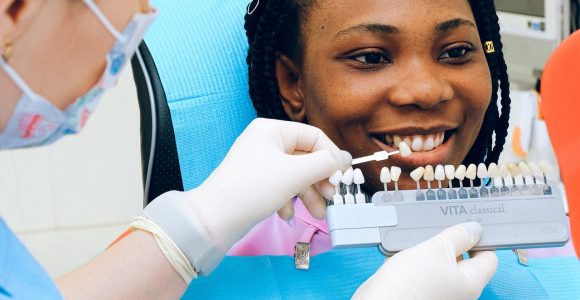Dental implants – the recovery

Dental implantation is a life-changing procedure for those who have lost their teeth, and it can make a serious difference for people who have fallen victim to tooth loss. When diving into the process, the invasiveness of the surgery can be very daunting, and often, patients are worried about what the recovery time will be like. If this is something you can relate to, then fear not. Here’s all you will need to know about the recovery process after having dental implants Hertfordshire.
Post-surgery
Every case will differ from person to person; therefore, it’s super important that you manage your expectations of exactly what your journey will be. The support you need post-op will vary greatly, depending on your circumstance. Contributing factors include the number of teeth affected, your DNA and your management of the recovery process. It’s best to open the conversation about your worries about recovery early with your dentist; they will be able to guide you better as they know your circumstances.
Simple cases
If the patient is going through a simple implantation process with little to no bone grafting needed, then there should be very little post-op discomfort or inflammation. And as such, most people will be able to continue with their lives with very little disruption.
However, in the vast majority of post-surgery cases, there will be some minor swelling and low levels of pain and discomfort; in some cases, there may even be bruises around the face. These symptoms should disappear within a week or so. Your dentist should, for the most part, be able to advise you on what medication you should be taking to help ease the discomfort.
It’s highly likely that for the first week or so, patients will want to keep to a relatively easy-to-eat diet, with soft foods being preferred as they heal. Usually, within 7 to 10 days, the pain can ease and those affected will be able to return to their normal diets.
Bone grafting
Bone grafting often precedes the placement of dental implants, serving as the initial step in the process. This procedure aims to establish a sturdy foundation by grafting bone onto the jaw, providing a secure attachment point for the implant. The duration of healing varies, with some grafts requiring at least six months before the implantation stage.
During this healing period, patients should exercise special care for the treated area, emphasizing good oral hygiene practices and avoiding strenuous activities. Following the placement of the implant, it is also advised to have regular follow-up appointments with specialists in Dental Implants in Missouri (or any other location) to ensure proper healing and address any concerns that may arise during the recovery process. This ongoing care is crucial for the success and longevity of the dental implant.
Delayed healing
Like with any form of surgery, if patients themselves do not put forward their best recovery practices, it will likely delay them from returning to their normal lifestyles. Things that delay recovery include smoking, drinking alcohol, poor diet, excessive exercise, stress, poor dental care and touching the area affected. When you visit your dentist for your surgery, they should talk you through the final details of your aftercare, how best to serve yourself in your recovery and what support to ask from them and those around you. Like with all things, rest and recuperation will serve you best, so taking a few days off for yourself without work and house chores will greatly benefit your long-term healing.



